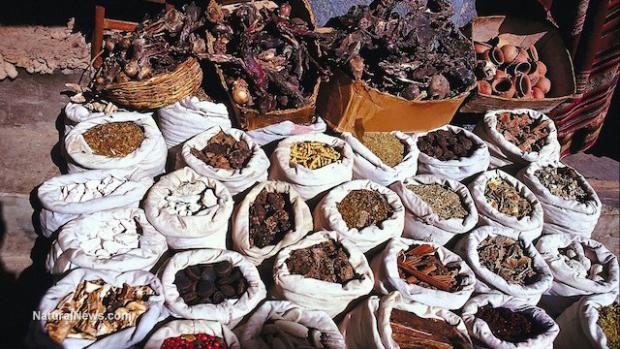
Breaking News
 Tucker Exposes Trump Would-Be Assassin Thomas Crooks' Social Media History, The FBI Coverup...
Tucker Exposes Trump Would-Be Assassin Thomas Crooks' Social Media History, The FBI Coverup...
 This Was A Major Red Flag In 2008, And Now It Is Happening Again!
This Was A Major Red Flag In 2008, And Now It Is Happening Again!
 Trump orders DOJ probe into Epstein's alleged ties with JPMorgan, Clinton and other Democrats
Trump orders DOJ probe into Epstein's alleged ties with JPMorgan, Clinton and other Democrats
Top Tech News
 Blue Origin New Glenn 2 Next Launch and How Many Launches in 2026 and 2027
Blue Origin New Glenn 2 Next Launch and How Many Launches in 2026 and 2027
 China's thorium reactor aims to fuse power and parity
China's thorium reactor aims to fuse power and parity
 Ancient way to create penicillin, a medicine from ancient era
Ancient way to create penicillin, a medicine from ancient era
 Goodbye, Cavities? Scientists Just Found a Way to Regrow Tooth Enamel
Goodbye, Cavities? Scientists Just Found a Way to Regrow Tooth Enamel
 Scientists Say They've Figured Out How to Transcribe Your Thoughts From an MRI Scan
Scientists Say They've Figured Out How to Transcribe Your Thoughts From an MRI Scan
 SanDisk stuffed 1 TB of storage into the smallest Type-C thumb drive ever
SanDisk stuffed 1 TB of storage into the smallest Type-C thumb drive ever
 Calling Dr. Grok. Can AI Do Better than Your Primary Physician?
Calling Dr. Grok. Can AI Do Better than Your Primary Physician?
 HUGE 32kWh LiFePO4 DIY Battery w/ 628Ah Cells! 90 Minute Build
HUGE 32kWh LiFePO4 DIY Battery w/ 628Ah Cells! 90 Minute Build
 What Has Bitcoin Become 17 Years After Satoshi Nakamoto Published The Whitepaper?
What Has Bitcoin Become 17 Years After Satoshi Nakamoto Published The Whitepaper?
These 15 common herbs cure everything from infections to inflammation and indigestion

(NaturalNews) There are a lot of options out there besides pharmaceuticals to help cure a cold, treat an infection, or calm the stomach. And one of those options is medicinal herbs, which cover the spectrum of everything from ulcers and insomnia to psoriasis and inflammation. Here are 15 of the best herbal options you might consider trying:
1) Peppermint. Often used to help clear the sinuses and treat allergies, peppermint is among the most common medicinal herb. It's traditionally infused into a tea to help digestion and menstrual pain, and breathed as vaporized oil to help aid in quelling respiratory ailments.
2) Garlic. A pungent bulb from the onion family, garlic does almost everything. It's an antiseptic, anti-inflammatory, and anti-cancer herb that helps boost the immune system and ward off colds and coughs. It can also treat skin infections, intestinal worms, and sinusitis.
3) Echinacea. The root of this plant is a powerful immune booster that helps prevent and treat infections. It also shows efficacy as a remedy for shingles, ulcers, influenza, and tonsillitis, as well as a fix for nausea, aches, and pains, and blood poisoning when used homeopathically.
4) Aloe vera. The gel of this desert plant can be rubbed on the skin to treat sunburns and other skin injuries. It can also be consumed to help cleanse and repair the bowel, thus helping to improve digestion.
5) Feverfew. Similar to echinacea, feverfew has long been used in traditional herbalism to treat migraine headaches and reduce arthritic pain.
6) Evening primrose oil. Rich in the omega-6 fatty acid Gamma Linolenic Acid, this native American wildflower seed oil helps reduce joint stiffness and is also said to help boost cognitive function and concentration.
7) Marigold. These bright orange flowers can be brewed into a tea and used to treat topical inflammation and varicose veins. It is also beneficial in helping to treat fungal infections, as well as gargled to help fix a sore throat.
8) Ginkgo biloba. Rich in flavone glycosides, ginkgo biloba helps improve circulation by naturally thinning the blood, which has the added effect of helping to boost memory.
9) Ginger. A flavorful remedy for stomach pain and nausea, this root plant contains a host of pain-relieving compounds that, in many cases, make it a better option than over-the-counter pain pills.
10) Arnica. Often used as a homeopathic remedy for pain, this yellow mountain plant is widely known to help the body heal itself more quickly from an injury. It can also be applied directly to bruised or damaged skin that hasn't been broken to relieve inflammation.

 A WORLD OF DEBT
A WORLD OF DEBT
 Unbanked In A Connected World
Unbanked In A Connected World

